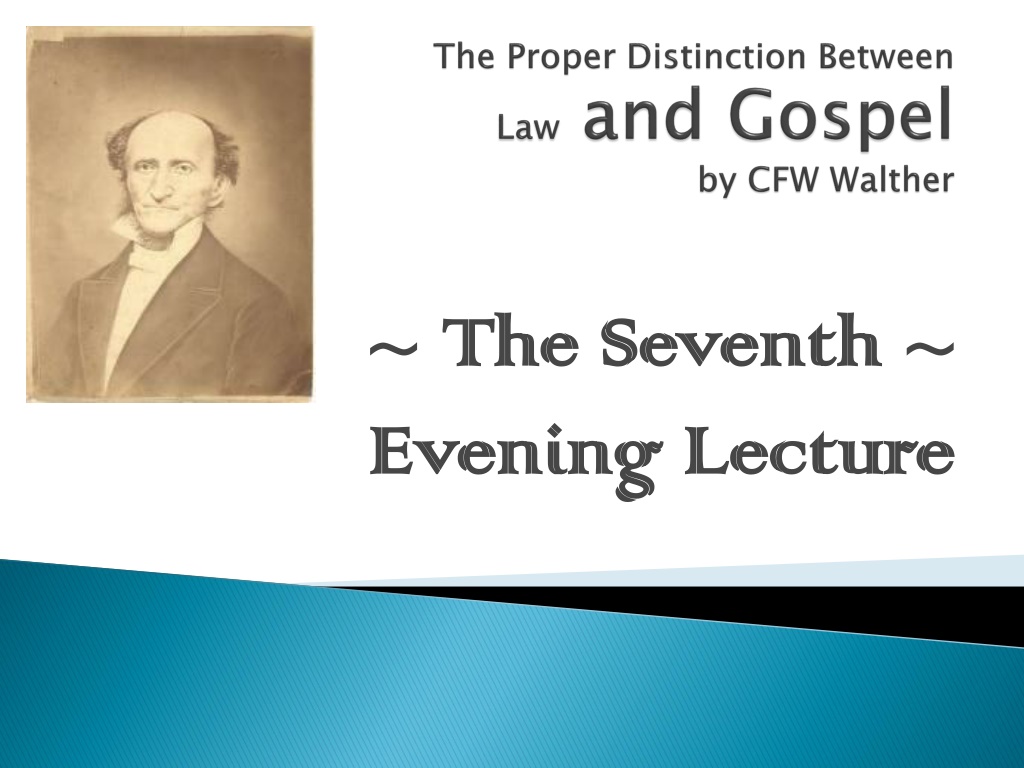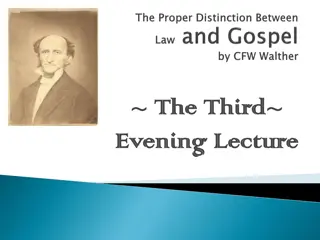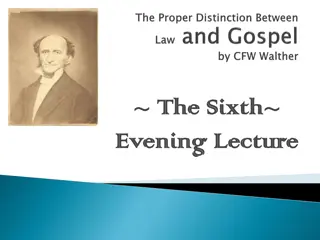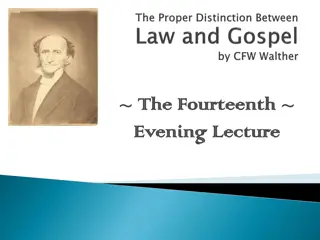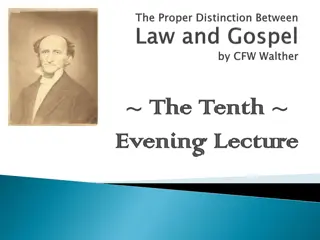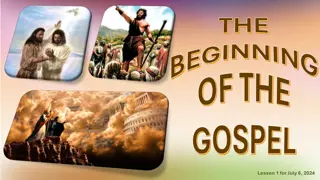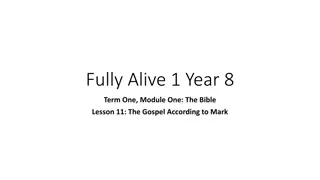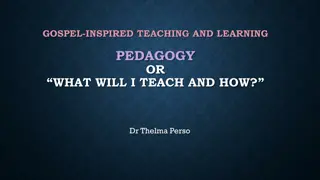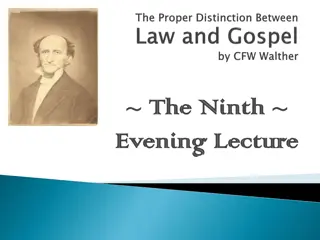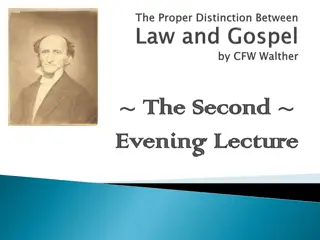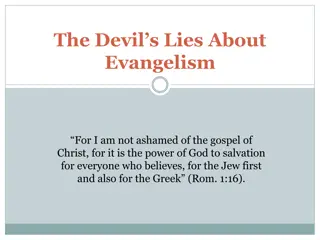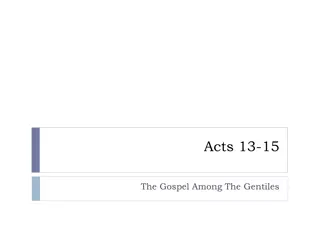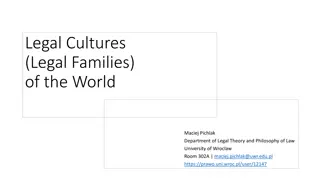Understanding the Art of Distinguishing Law and Gospel
Distinguishing between Law and Gospel is considered the most challenging yet essential skill for Christians. It is a concept taught by the Holy Spirit through experience, requiring a deep understanding to avoid confusion and self-righteousness. The intellectually gifted may struggle with this distinction, while those who have personally felt the impact of both aspects tend to excel in preaching and understanding the core principles of Christianity.
- Law and Gospel
- Christian theology
- Distinguishing doctrine
- Holy Spirit guidance
- Spiritual discernment
Download Presentation

Please find below an Image/Link to download the presentation.
The content on the website is provided AS IS for your information and personal use only. It may not be sold, licensed, or shared on other websites without obtaining consent from the author. Download presentation by click this link. If you encounter any issues during the download, it is possible that the publisher has removed the file from their server.
E N D
Presentation Transcript
~ The Seventh ~ ~ The Seventh ~ Evening Lecture Evening Lecture
In Thesis III, Walther says that rightly distinguishing Law from Gospel is the most difficult and highest art of Christians. It is taught only_____________ in the school of ______________. Luther says that it is not difficult to know the difference between Law and Gospel what is the difficult part? At what point in life is it especially dangerous to confuse Law and Gospel? 2
Rightly distinguishing the Law and the Gospel is the most difficult and the highest art of Christians in general and of theologians in particular. It is taught only by the Holy Spirit in the school of experience. 3
The intellectually gifted! - As a matter of fact, the better gifts and the greater knowledge a person possesses, the more easily he is tempted to self-esteem and self- reliance, the more he is apt to take matters easy, and, accordingly, he never arrives at the knowledge of the proper connection and the proper distinction of these doctrines. 4
Yet the good man, upon the whole, accomplished little because he was poor in distinguishing the Law from the Gospel, habitually mingling the one doctrine with the other. 5
He taught that a person becomes righteous in the sight of God, not by the righteousness which Christ, by His bitter suffering and death, has acquired for him, but by the indwelling of Christ with His essential divine righteousness in a person. 6
Ministers who may be classed among the poorest intellectually not infrequently are found to be the best preachers Because they have duly experienced the force of the Law and the consolation of the Gospel. 7
He will best learn this art who has attained to the love of his Lord Jesus and has experienced the power of the Law and the Gospel. 8
None of them! Everything else that a theologian must know is of less value than this art. 9
2 Tim. 2, 15: Study to show thyself approved unto God, a workman that needeth not to be ashamed, rightly dividing the Word of Truth. 10
Feed each person in the household with exactly the food that he or she needs. That every one is given his due portion at the proper time 11
No one still lugging with him the spirit of the world can ever properly learn how to make this distinction. For the Spirit of God does not dwell in a heart in which the spirit of the world still claims a place. 12
He might use it wrongly - Using the quick and sharp Word of God is not all that you have to do. With this sharp sword you may very easily slay souls if you do not minister to their necessities. 13
These are speedily followed by the soft blowing of the Holy Spirit in the Gospel. 15
As long as a person is afraid of dying, he is not a child of God. Oh, those poor worldly people! They are without any joys, any peace, any rest. Again, if you were to portray Christians as being exceedingly happy people, utterly without worry and trouble of any kind ,you would not paint a true picture. 16
may be misunderstood. For instance, this statement is liable to misconstruction: Any one sinning purposely and knowingly falls from grace. 17
Equally liable to misconstruction would be this statement: Good works are not necessary; only faith. The following statement, too, would be liable to be misunderstood: Sin does not harm a Christian. 18
in the pastors private ministrations to individuals. In the pulpit he may say sundry things, hoping that they will strike home. But when people seek his pastoral counsel, he is confronted with a far greater difficulty. 20
To discover to which class these various unconverted persons belong and to apply the proper medicine to them, that is the very difficulty of which I am speaking. My object is to convince you that a preacher can be truly fitted out for his calling only by the Holy Spirit. 21
The greatest difficulty is encountered in dealing with true Christians according to their particular spiritual condition. One has a weak, another a strong faith; one is cheerful, another sorrowful; one is sluggish, another burning with zeal; one has only little spiritual knowledge, another is deeply grounded in the truth. 22
it is of the utmost importance for him to understand temperaments. 23
God. An ordinary preacher may be an excellent theologian, and another, though he has studied all the languages, and God knows what other things besides, may not even be worthy of the name of theologian. Not man, but God, makes theologians. If you think that this statement goes to far, you are still blind. 24
